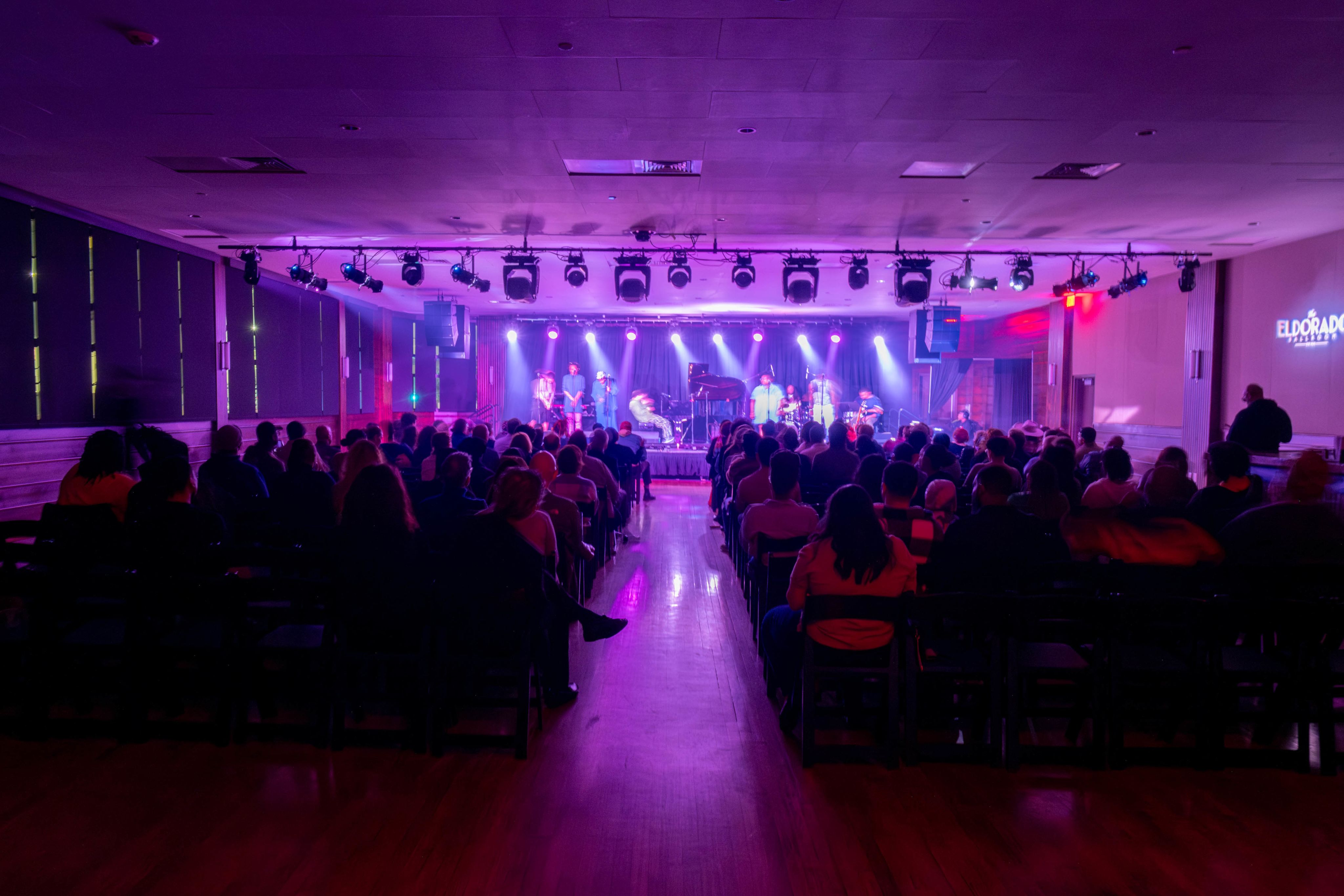Healing In Houston
Mitchell Center Visiting Artist Samora Pinderhughes Brings The Healing Project to Third Ward's Historic Eldorado Ballroom
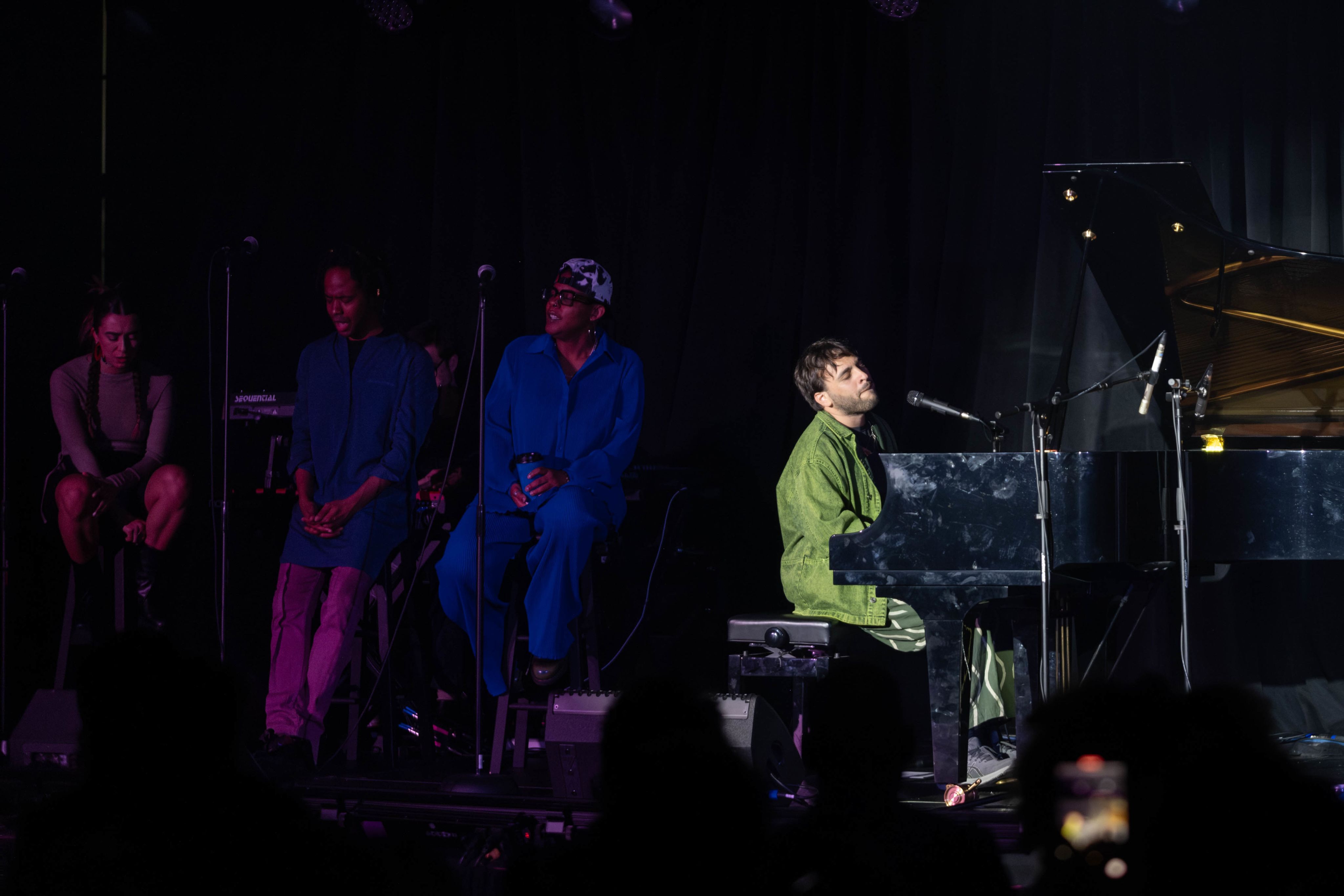
As a multidisciplinary artist, Samora Pinderhughes uses his creative practice as an abolitionist action to examine pressing sociopolitical issues, working in the tradition of the black surrealists throughout the African Diaspora to synergize sound, image, and word into vehicles for revolution.
Pinderhughes is a composer, pianist, vocalist and filmmaker who was recently awarded a $1 million grant from the Andrew W. Mellon Foundation, for his work with The Healing Project, which began in 2014 as an interview-based artistic work examining systemic oppression and articulating paths to individual and communal healing by bringing together the stories of people impacted by structural violence.
In March, Pinderhughes, a Visiting Artist with the Cynthia Woods Mitchell Center for the Arts, brought The Healing Project to Houston for the first time. Programming included an artist lecture at the University of Houston (March 19) co-presented by the Mitchell Center and the Elizabeth D Rockwell Center for Ethics and Leadership and a concert (March 21) with the additional support of Project Row Houses at the Eldorado Ballroom.
As Pinderhughes frequently works with incarcerated and formerly incarcerated collaborators, performing The Healing Project in Houston is particularly provoking and relevant. “We also work with immigrants who have dealt with the detention system, which obviously is a big issue in Texas,” he explains. “I wanted to show how all the elements of structural violence are connected.”
Whether it’s a film, a performance, an album, or a community project, Pinderhughes says his focus is on honesty in representation. “I think that’s part of why I like changing mediums,” he explains. “I really follow the story. I follow what the story needs and what the information needs that’s coming through the channel . . . it’s also understanding that I am in service of a communication that is larger than me.”
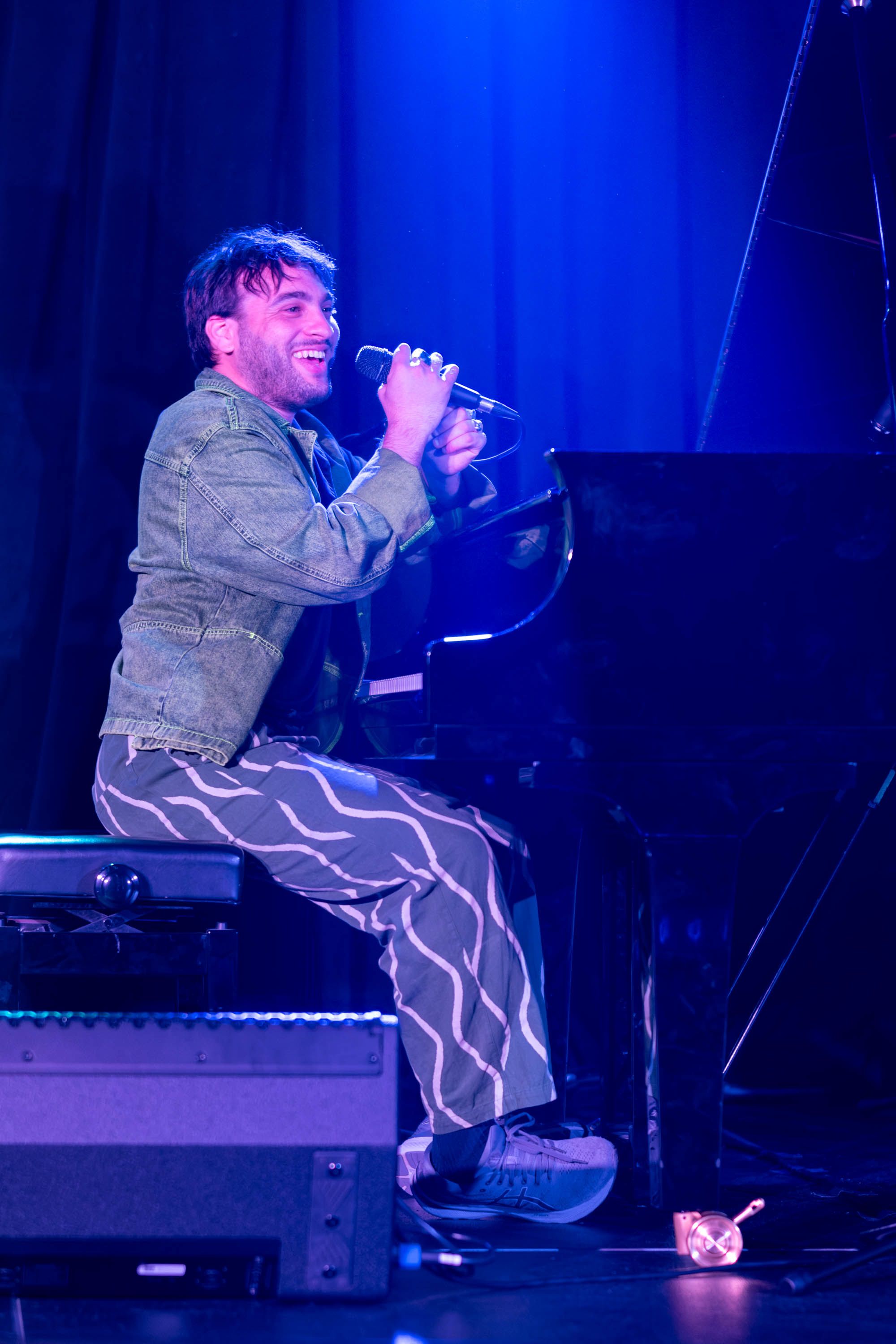
Pinderhughes addressing a full house on March 21 at Eldorado Ballroom
Pinderhughes addressing a full house on March 21 at Eldorado Ballroom
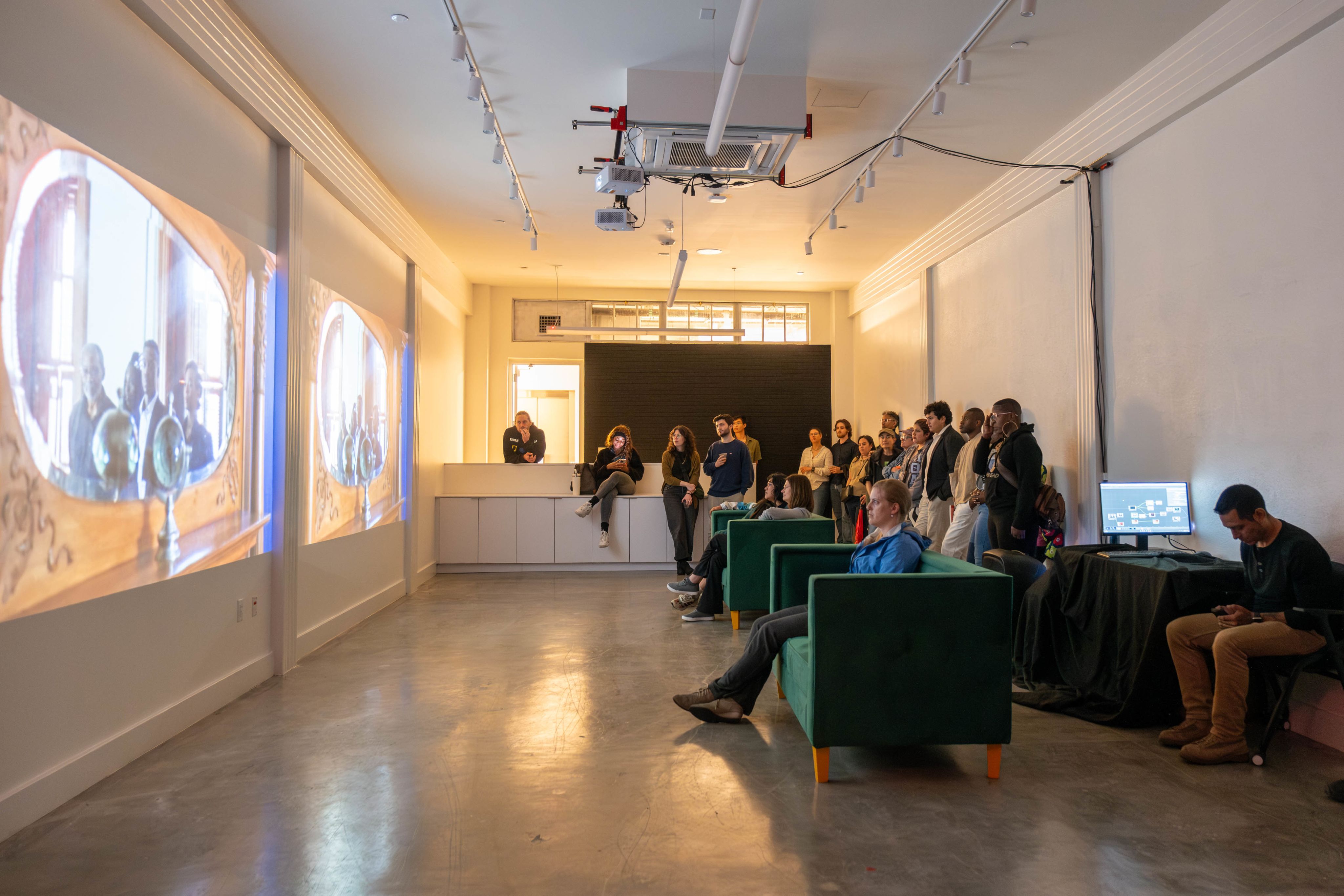
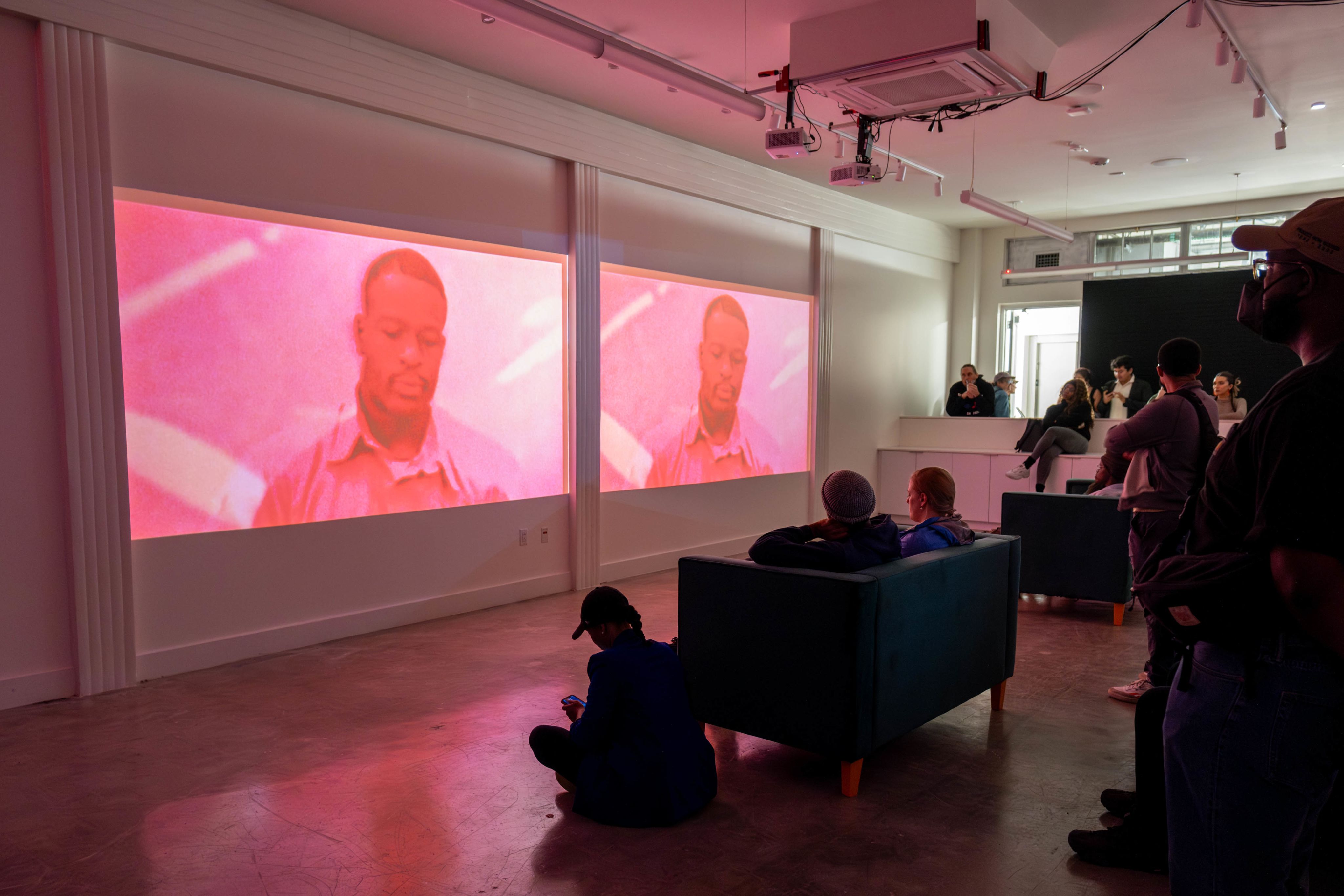
“I really follow the story. I follow what the story needs and what the information needs that’s coming through the channel . . . it’s also understanding that I am in service of a communication that is larger than
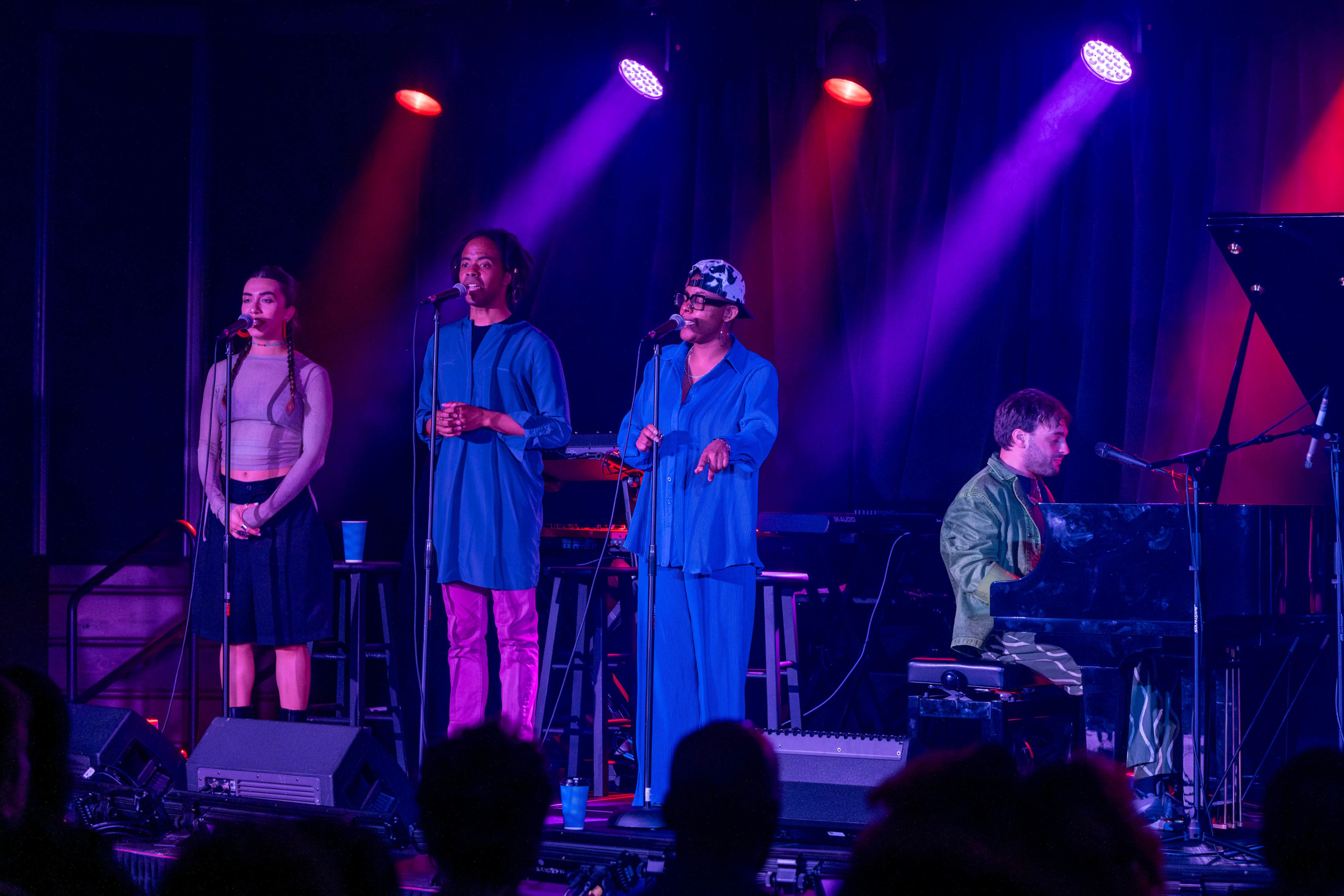
From left to right: Dani Murcia, Jehbreal Jackson, Nio Levon and Samora Pinderhughes
From left to right: Dani Murcia, Jehbreal Jackson, Nio Levon and Samora Pinderhughes
Pinderhughes was joined by fellow musicians and performers Joshua Crumbly, Nia Drummond, Jehbreal Jackson, Nio Levon, Dani Mucia, Chris Pattishall, Jonathan Pinson, and Elliot Skinner for an at-capacity, free concert at the Eldorado Ballroom owned by Project Rowhouse and just minutes away from the University of Houston’s central campus.
“Pinderhughes inherently activates community through the thoughtful practices of co-creation he employs with participants, and we wanted to mirror that approach with our co-presenters,” says Mitchell Center Managing Director, Melissa Noble. “With Elizabeth D Rockwell’s mission of ethics and social justice and the community platform of collective creation that Project Row Houses stands on, it was a natural collaboration to present The Healing Project."
The historic Eldorado Ballroom opened in 1939 under the vision of Anna and Clarence Dupree and was gifted to Project Row Houses in 1999. Designed by Houston architect Lenard Gabert Sr., the Art Deco style former nightclub hosted musical legends such as Duke Elliginton, Ray Charles and Count Basie.
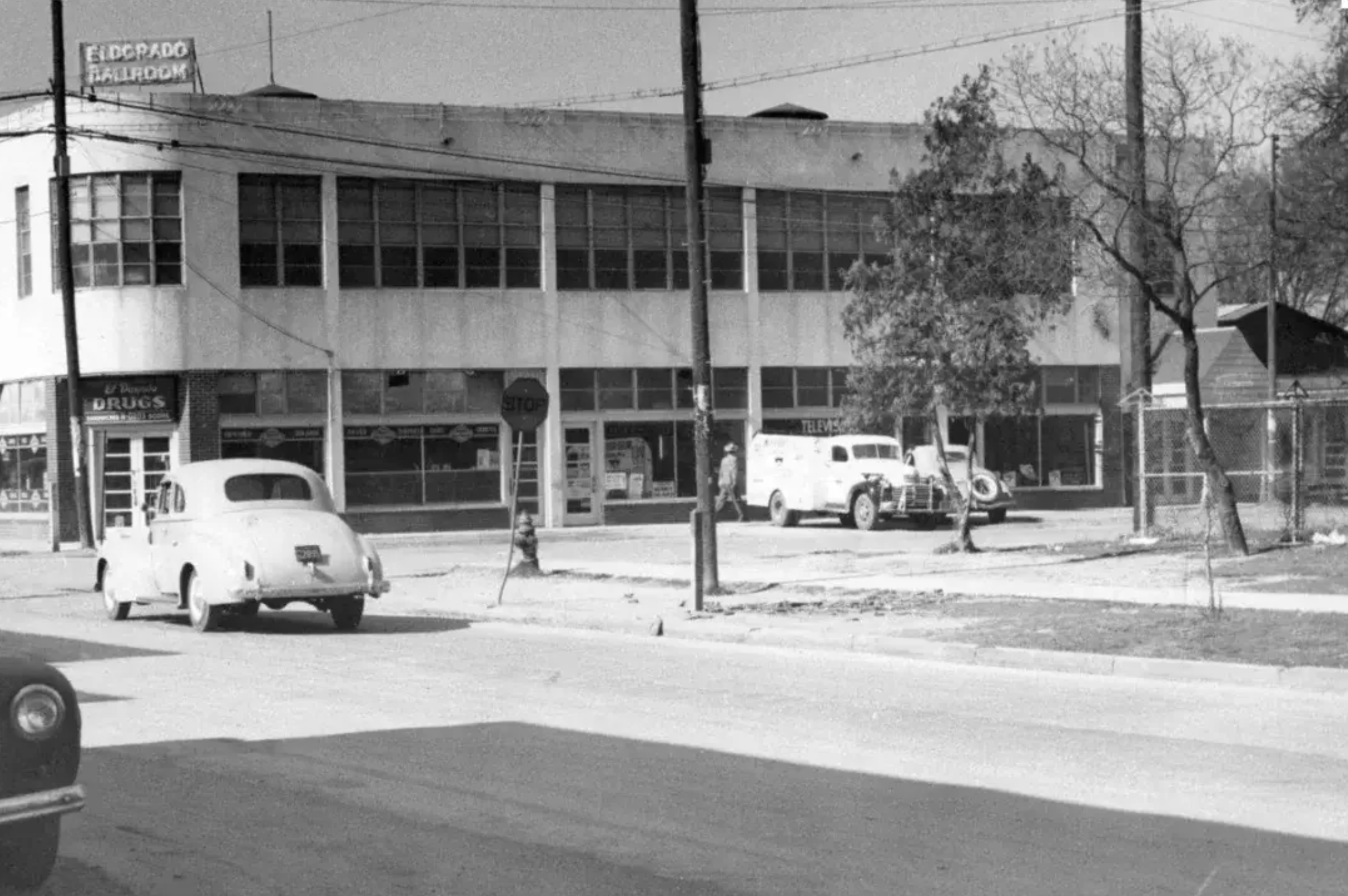
Historic image of Eldorado Ballroom courtesy of Project Row Houses
Historic image of Eldorado Ballroom courtesy of Project Row Houses
After a full renovation and restoration, the ballroom reopened to the public last year and remains a community landmark and destination for a new generation of artists and performers. Pinderhughes says he is honored to be performing The Healing Project at Eldorado Ballroom sharing that “it means a lot to be a part of the musical fabric, even just for a few days here.”
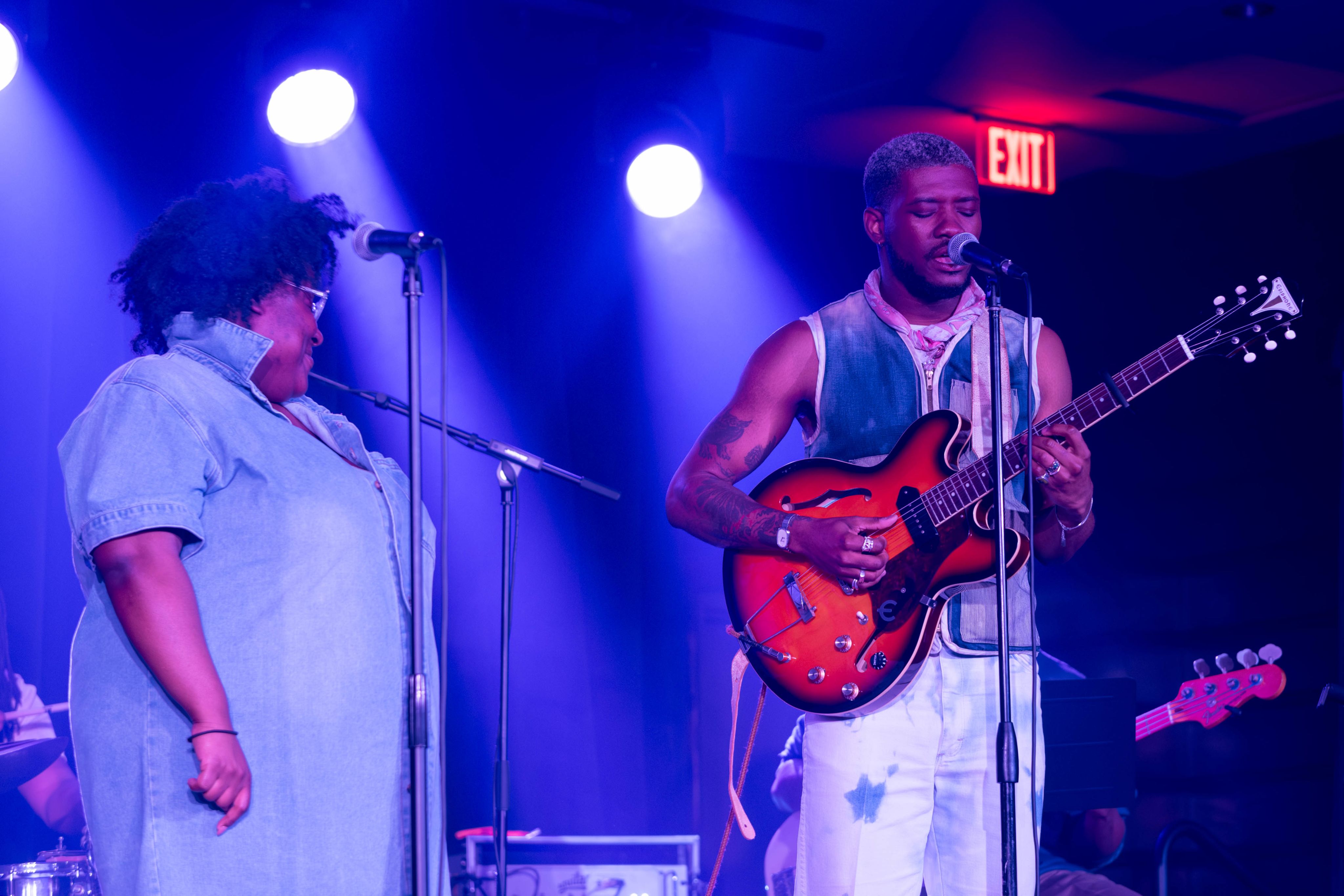
Nia Drummond and Elliot Skinner
Nia Drummond and Elliot Skinner
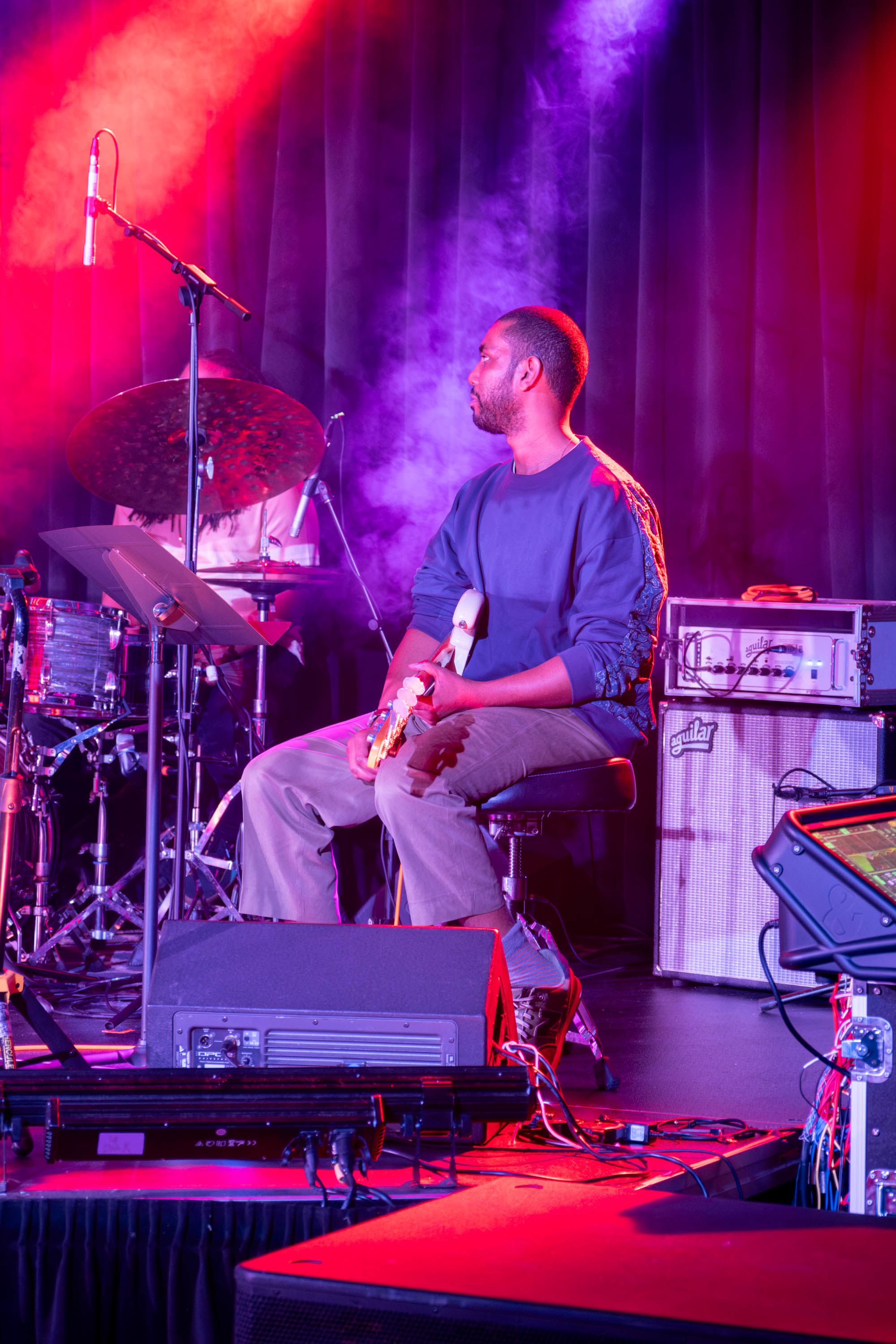
Joshua Crumbly
Joshua Crumbly
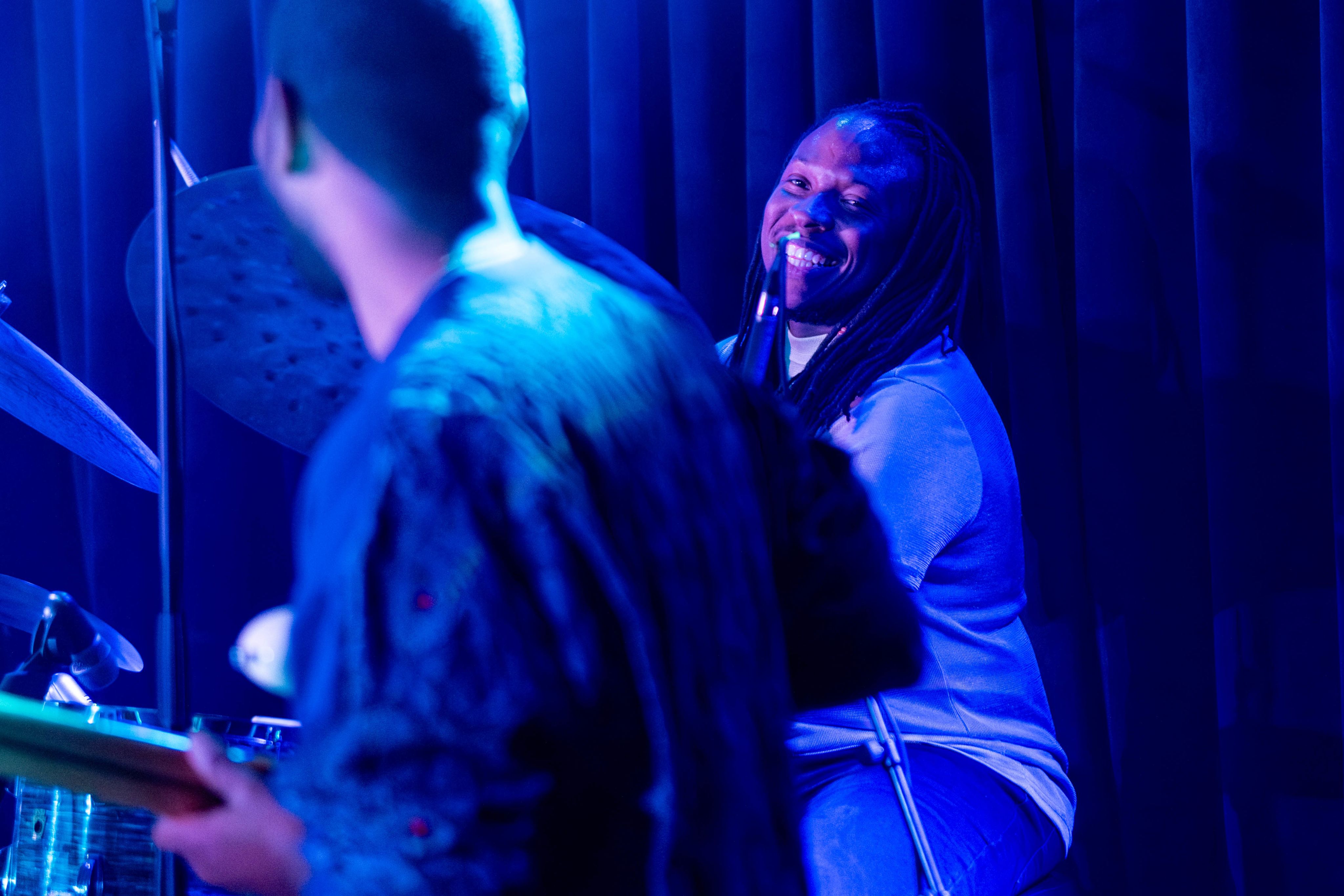
Joshua Crumbly (front) and Jonathan Pinson (back)
Joshua Crumbly (front) and Jonathan Pinson (back)
In an artist talk at the Rockwell Pavilion in the M.D. Anderson Library, two days prior to his concert, Pinderhughes shared his creative process and inspirations through a multi-media presentation featuring audio excerpts, film screenings, and personal anecdotes. Prioritizing community discourse, he engaged in further discussion about art making, social justice initiatives and current events prompted by audience feedback and inquiry.
“I think a lot of us have the capacity and even the desire to express ourselves . . . But we don’t really have the opportunity to do that,” he remarks. “And, you know, as an artist, that’s like literally my job, so that’s the greatest gift in the world.”
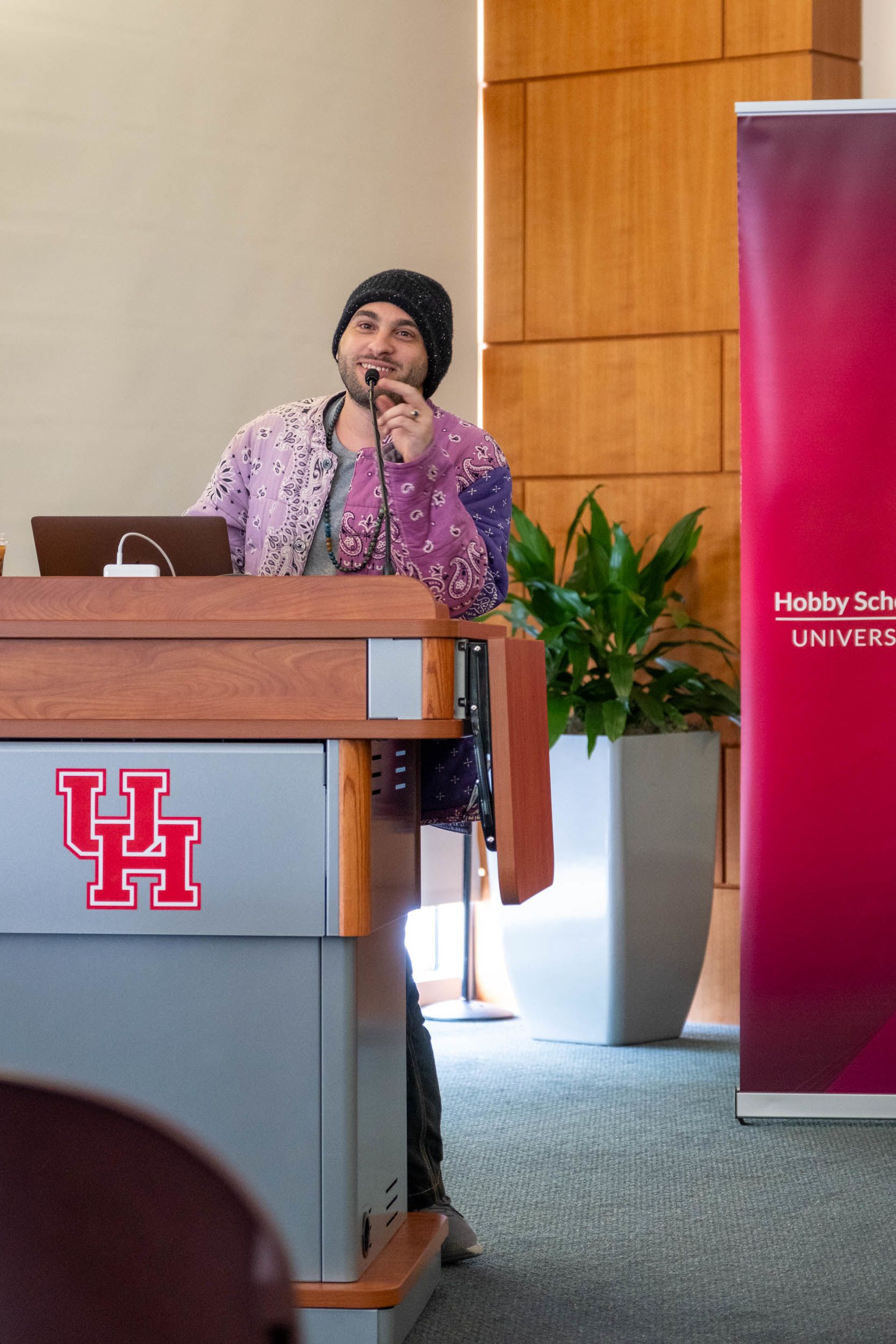
Quotations from Pinderhughes are courtesy of his interview with Eddie Robinson for I SEE U, a weekly radio program and podcast on Houston Public Media centered around cultural identity and racial equality that gives voice to those who have often been unheard. Robinson is both host and executive producer of I SEE U; his interview with Pinderhughes aired on April 12, 2024 entitled “Healing the Art and Soul of America with Samora Pinderhughes.” The I SEE U studios are located in Houston’s Third Ward, only blocks away from Eldorado Ballroom.
View the The Healing Project's Resource Page to locate action partners and learn how you can get involved in making abolition a reality.
